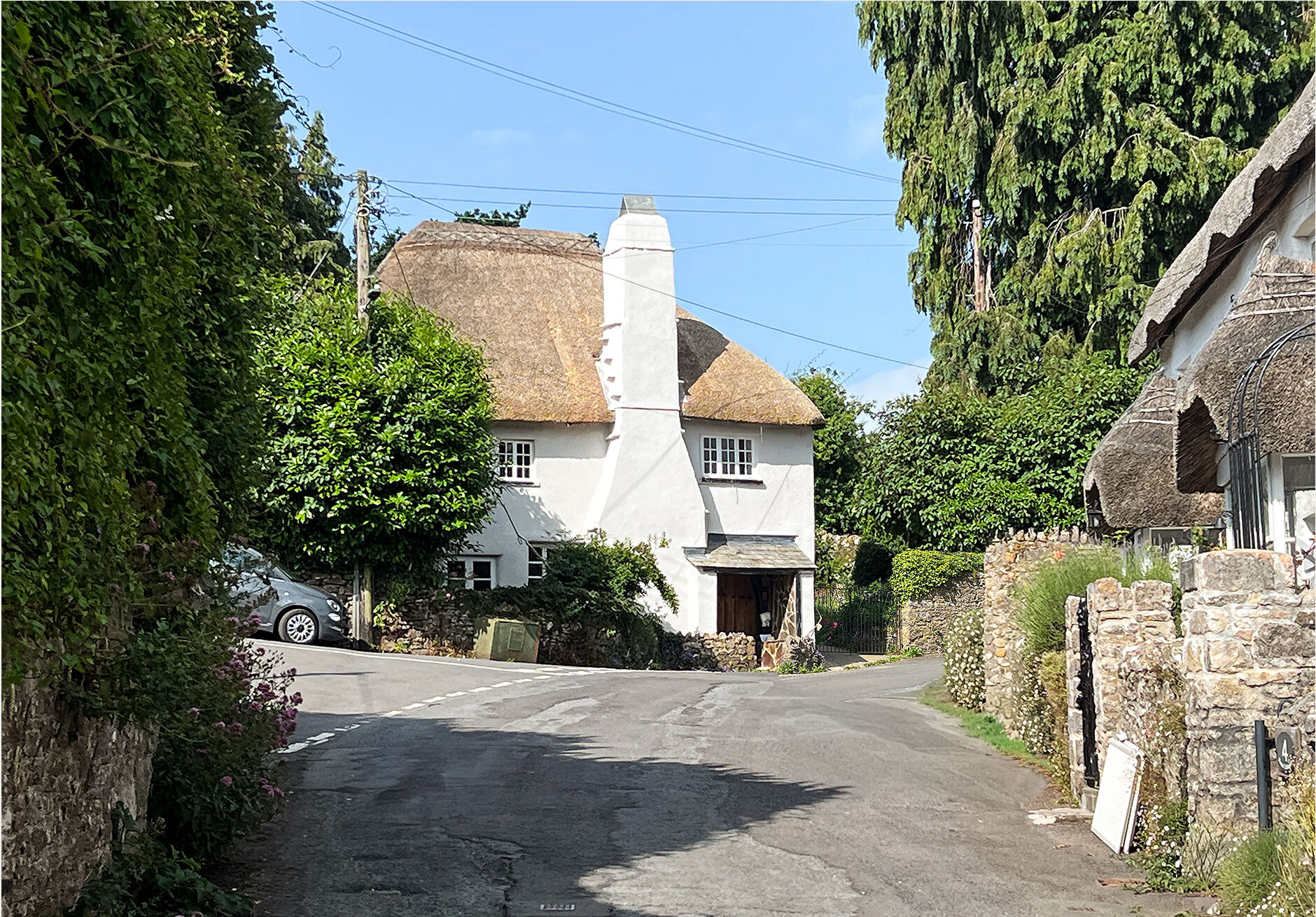The cottage is a traditional late-medieval former farmhouse in a small Devon village. Having undergone numerous alterations, it now requires urgent repair and reconfiguration to restore architectural coherence and meet modern living needs.
A modest single-storey timber-framed extension is proposed at the rear, replacing dilapidated ancillary structures. This addition introduces a well-insulated, naturally lit open-plan kitchen and dining area. Rainwater is channelled into a spout, collected in a large vessel, and reused across the garden.
Subtle landscaping complements the interior, improving access and privacy while blurring boundaries between inside and out. A redesigned permeable driveway enhances access and contributes to sustainable drainage.
A lightweight garden studio, replacing a disused garage, provides flexible accommodation and connects historic and modern construction methods. Externally, new volumes are clad in locally sourced timber to suit the rural setting. Restoration of the road-facing facade enhances the cottage’s historic character within the village.
Inside, reconfiguration creates an additional bedroom and family bathroom. Repair and waterproofing works strengthen the original structure while respecting its historic fabric.
The proposals follow strong environmental principles: replacement double-glazed windows, internal insulation, breathable construction, and high-performance standards in the extension ensure efficiency, comfort, and long-term durability.
Together, these interventions sensitively restore and extend the cottage – balancing heritage conservation with sustainable, future-proof design.


